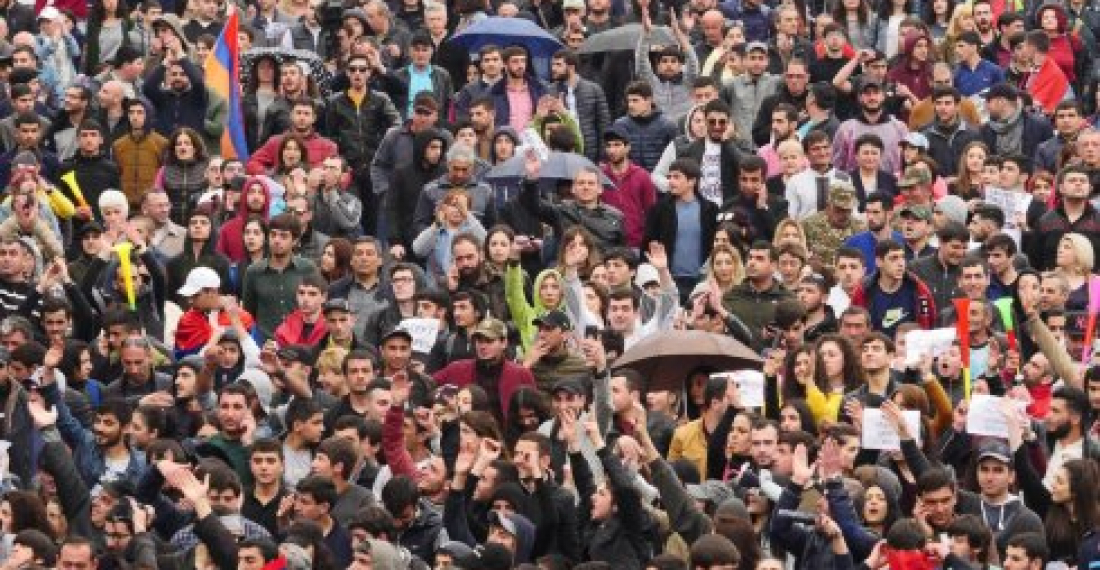Demonstrations and street protests in Armenia gathered momentum on Friday (20 April) with protestors blocking traffic in large parts of the capital Yerevan, before gathering for an evening rally in the centre of the city, an event which observers say attracted up to 50,000 people.
The size and persistency of the protests have already marked them as different from previous similar outbursts of anti-government feeling, in what is usually a tightly controlled political environemnt.
Addressing the Friday evening rally, the leader of the protests, opposition MP Nikol Pashinyan outlined his demands to cheering supporters. They include the resignation of the Serzh Sargsyan as prime minister, the formation of a national provisional government and early and free parliamentary elections. Pashinyan said that any dialogue or negotiations with the government had to be on those basis.
There are reported to be behind the scenes efforts to try to diffuse the situation, with national and religious leaders, as well as the international community calling for calm. Sargsyan, who has been Armenia's strongman for more than a decade, has seen off street protests before, but many Armenian commentators insist that this time it is different. It is not only the sheer size of the demonstrations that marks them out from previous protests, but also the large presence of young people in their late teens and early twenties, that seem to have given the protests added vigour. It is also noted that in Pashinyan, the protests have an articulate and resolute leader, who is unlikely to be silenced easily.
source: commonspace.eu
photo: Demonstrators in anti government protests in Yerevan on Friday 20 April 2018 (picture courtesy of radio Free Europe/Radio Liberty)







